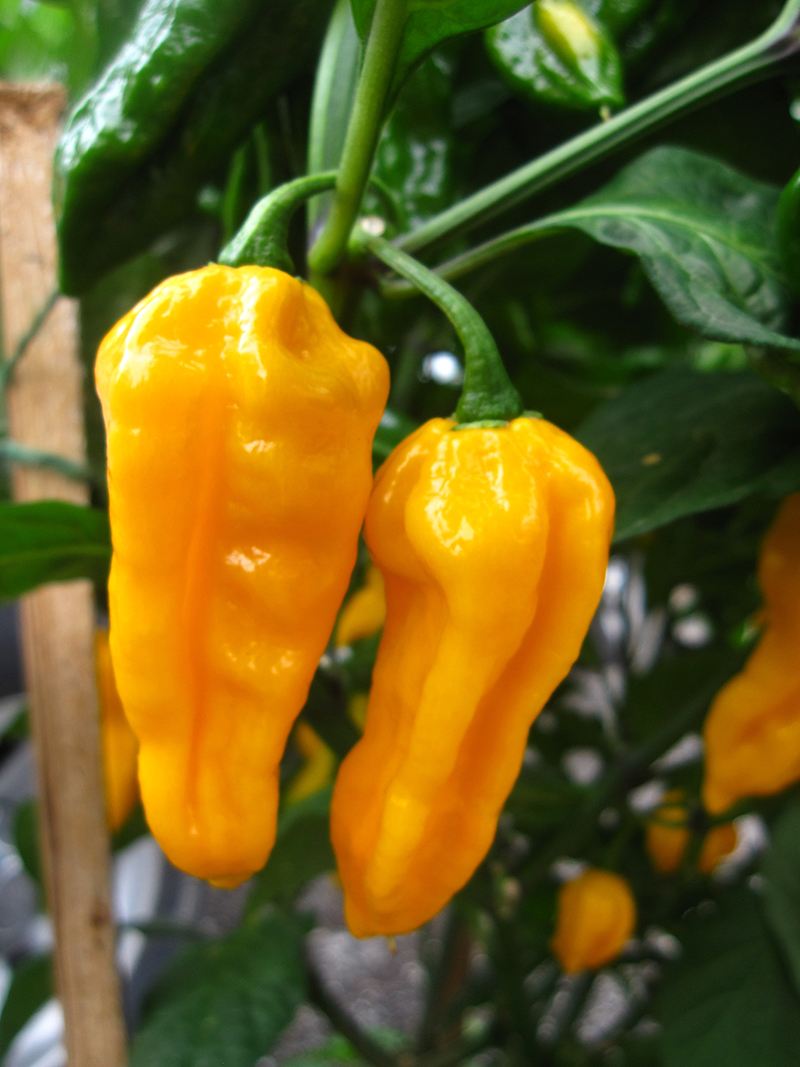Some Like it Hot: Growing Hot Peppers
Mark and Ben Cullen
www.markcullen.com
Here in Canada, there is enormous interest in cooking with peppers. We are not surprised that the interest in growing them is also exploding. They love full sun and heat, whether it is a hot pepper or a sweet pepper.
This is a good time of year to start peppers from seed. You will need a sunny window, well drained container like a seeding flat or egg carton and of course fresh garden seed.
Sow one seed every 2 cm or so and pluck them out when they grow leaves to transplant in 4 inch pots. Always use your sunniest window or grow lights for peppers. They are a high-light plant.
Our recipe for the best possible pepper crop:
1. Size matters: if you’re buying your plants from the garden centre, buy the shorter ones. The stockier the better and look for dark green foliage.
2. Prepare the soil: dig a hole, about 3 shovels wide and deep. Fill the hole with triple mix, Mark’s Choice garden soil or vegetable garden soil.
3. Water with a compost-tea solution: this works well if you have a composter and a rain barrel. Simply take an old pillowcase and half fill it with compost. Drop it into your rain barrel and leave it there for 24-48 hours. The water will be infused with nutrients from the compost. Another option is ProMix organic-based fertilizer for vegetables & fruits 3-6-12.
5. Water deeply: in the morning, and at the soil level. Peppers prefer to dry to a depth of about five centimeters between water applications. When you do water, do so deeply, making sure that the roots contact the water.
6. Weed. All vegetable crops produce best when they are kept weed free. We recommend that you mulch peppers with shredded cedar bark mulch after they have been in the ground for a few weeks. Lay it about 4 to 5 cm deep. Bark mulch insulates the soil from the drying effects of the sun and prevents many weeds from germinating in the first place. When weeds grow through it, as they will, they are easy to pull from the loose mulch. You will find that you are applying water less frequently also.
7. Harvest often. The more often that you pick your ripe peppers, the more peppers the plant will produce. True for all ‘fruiting’ plants including beans. Words to live by.




